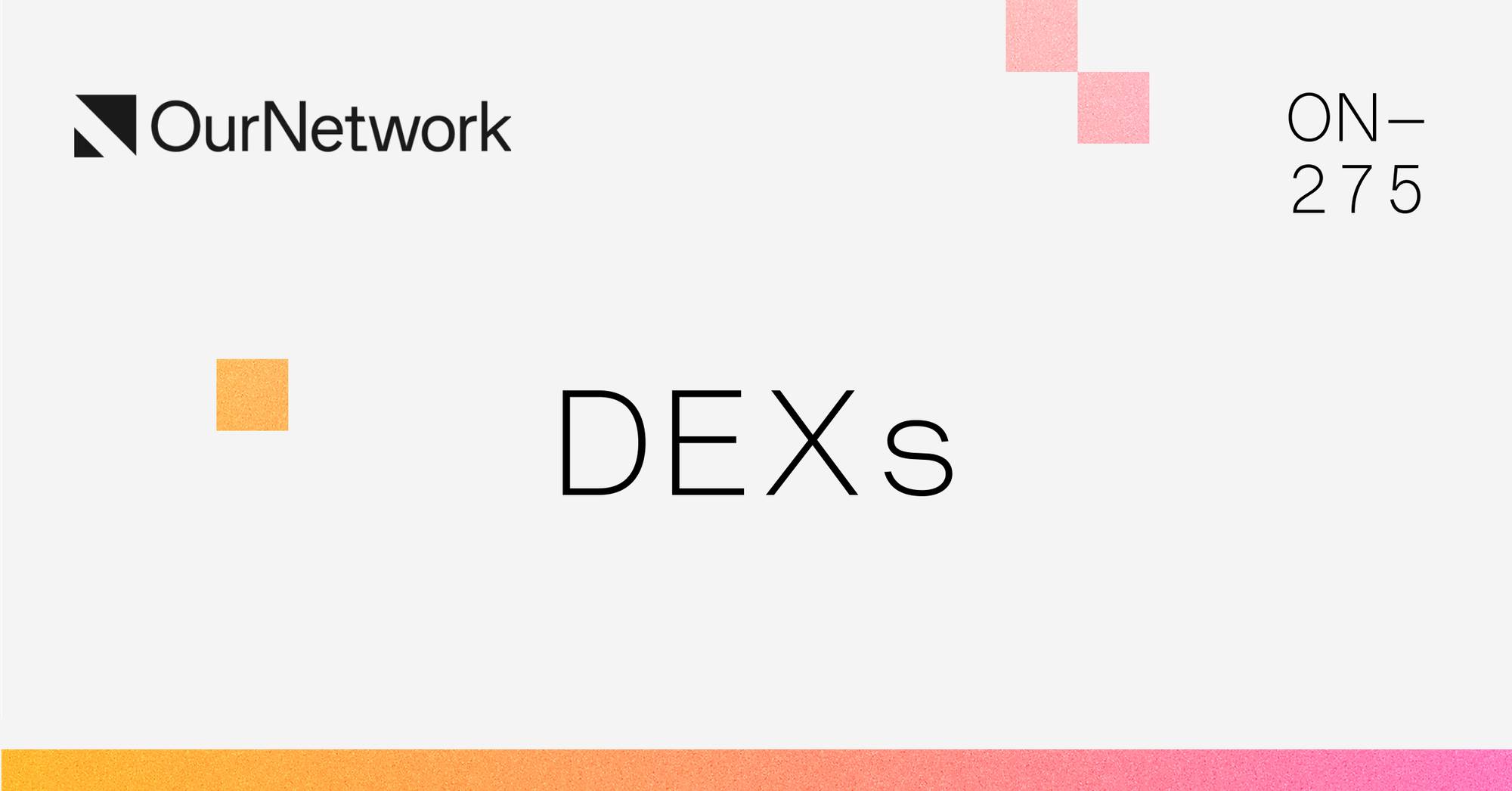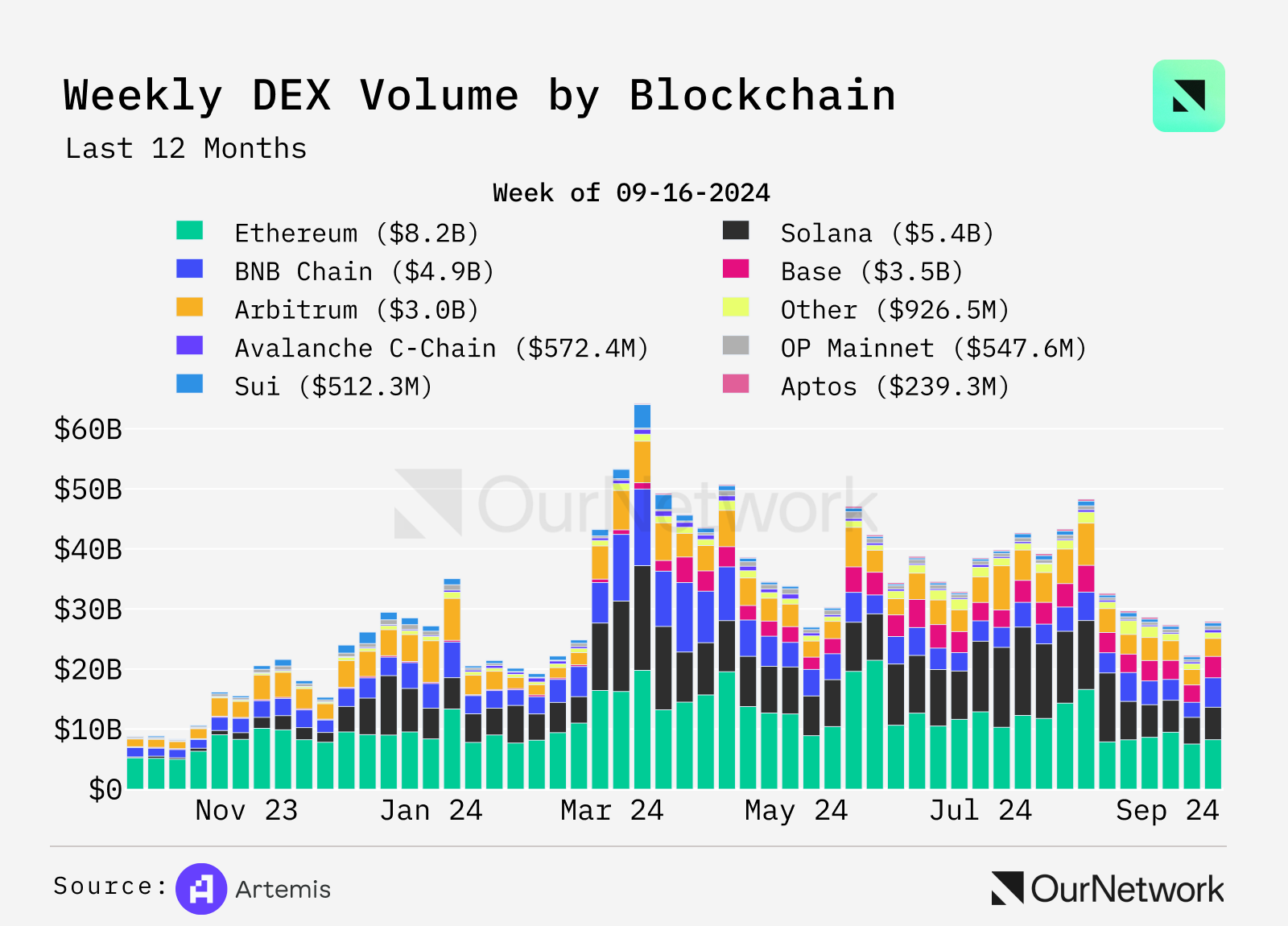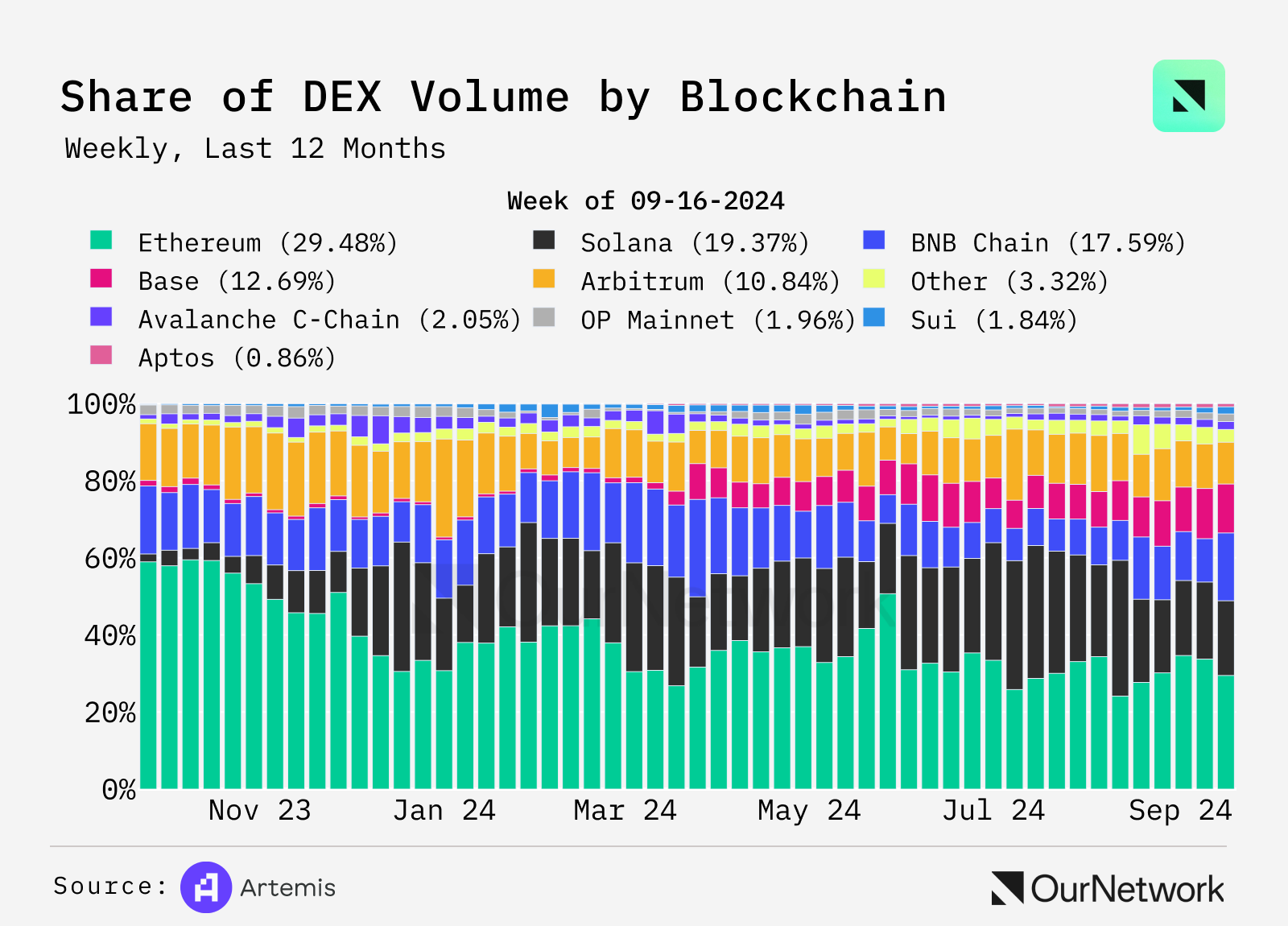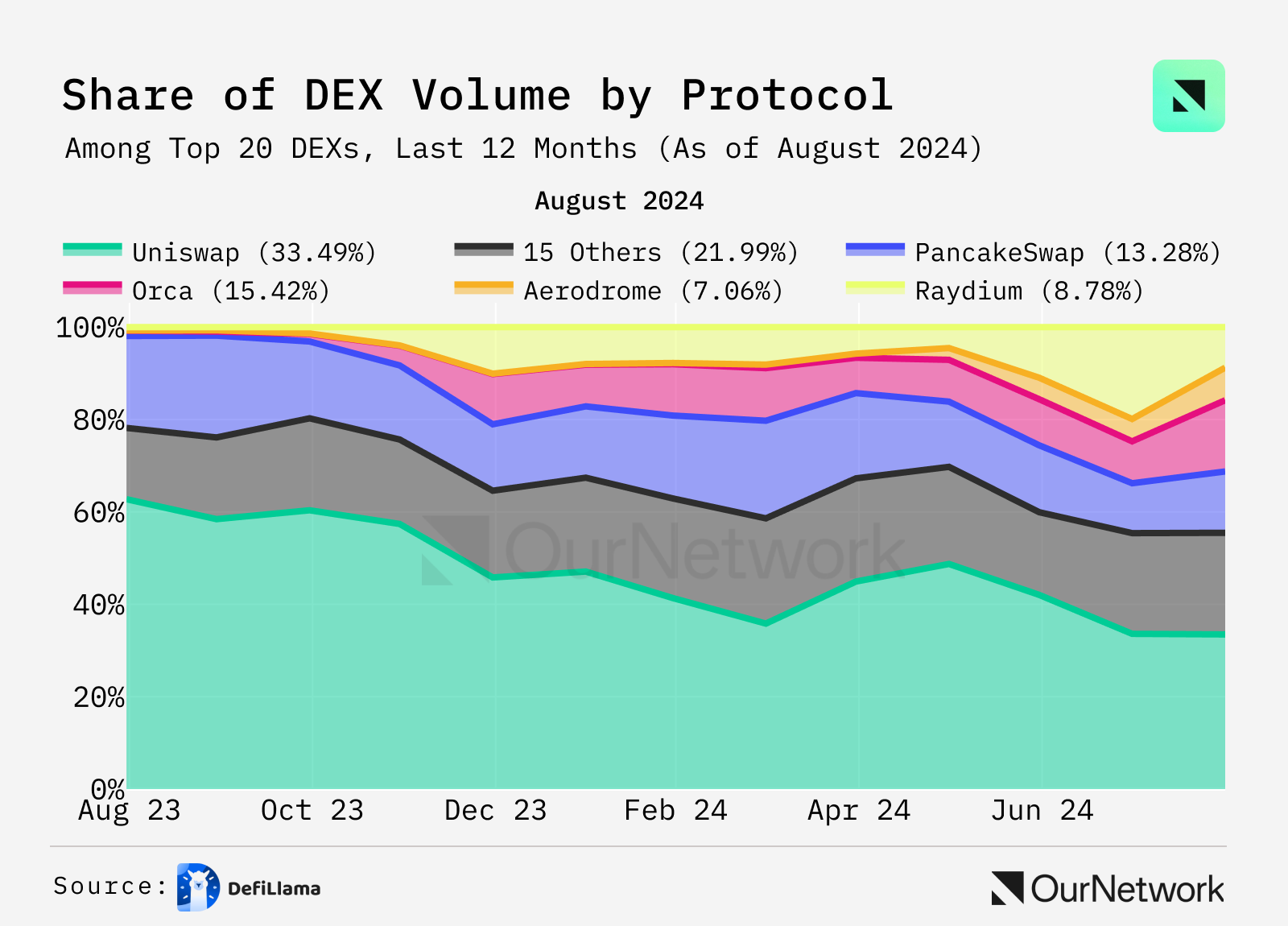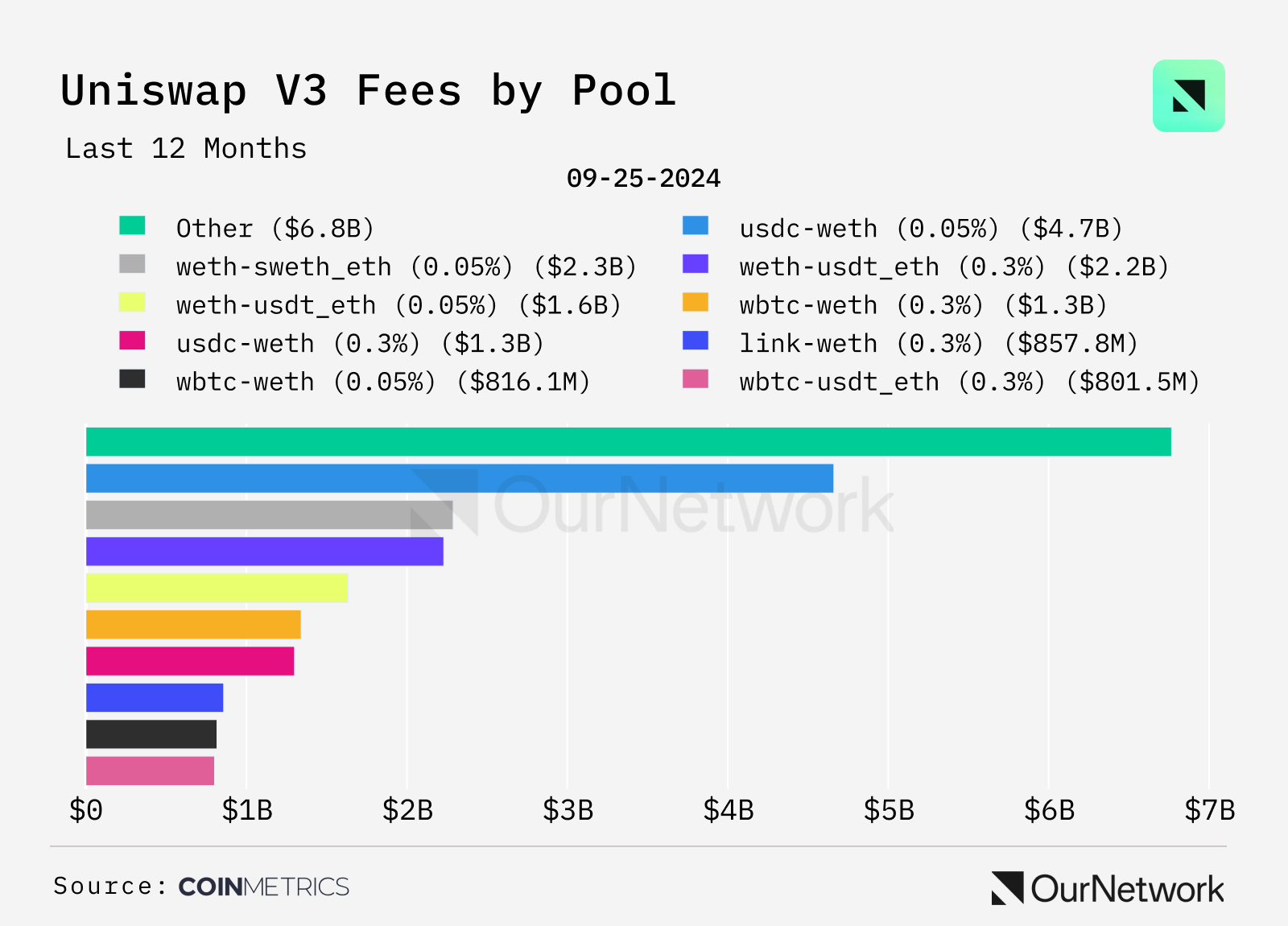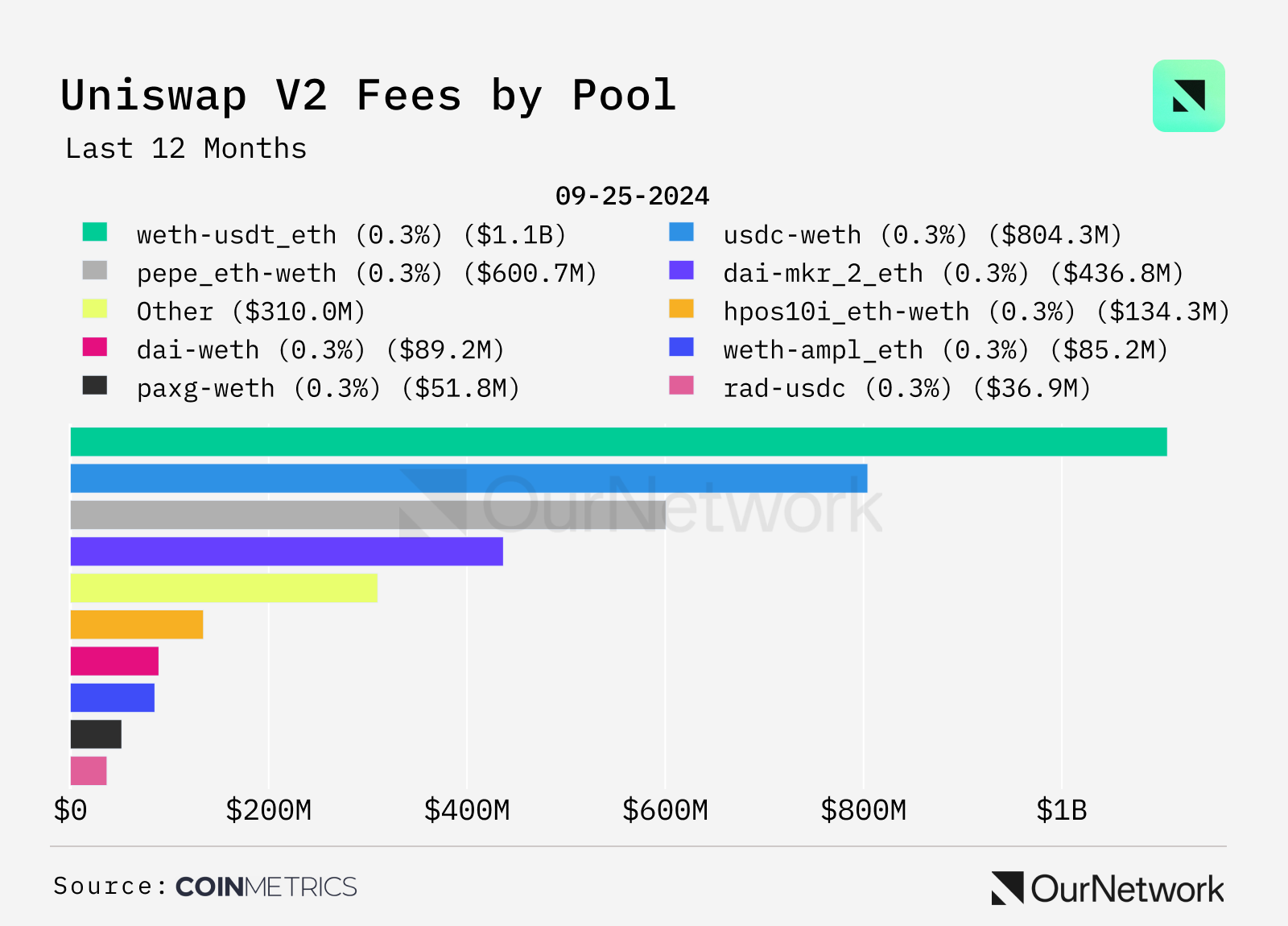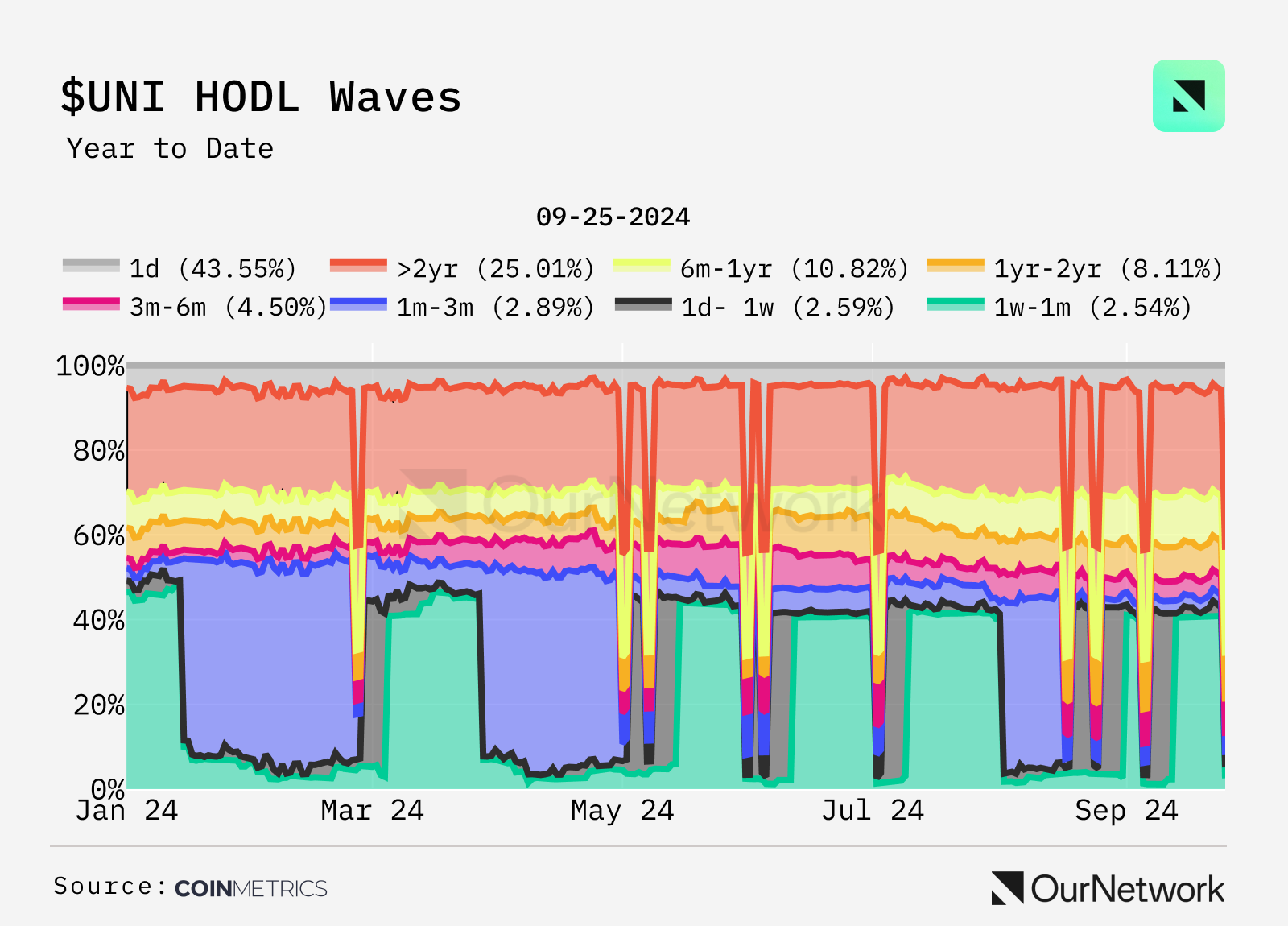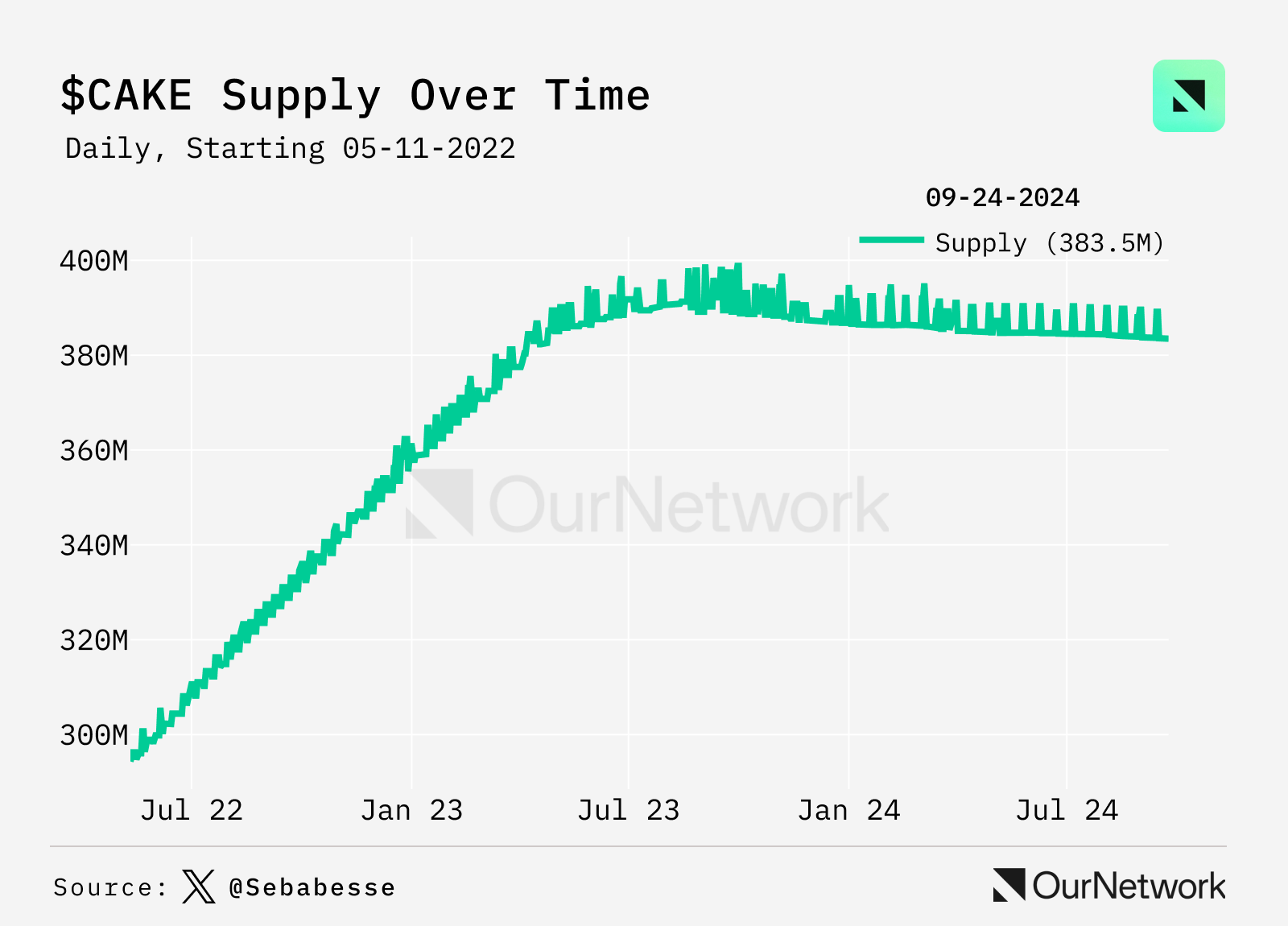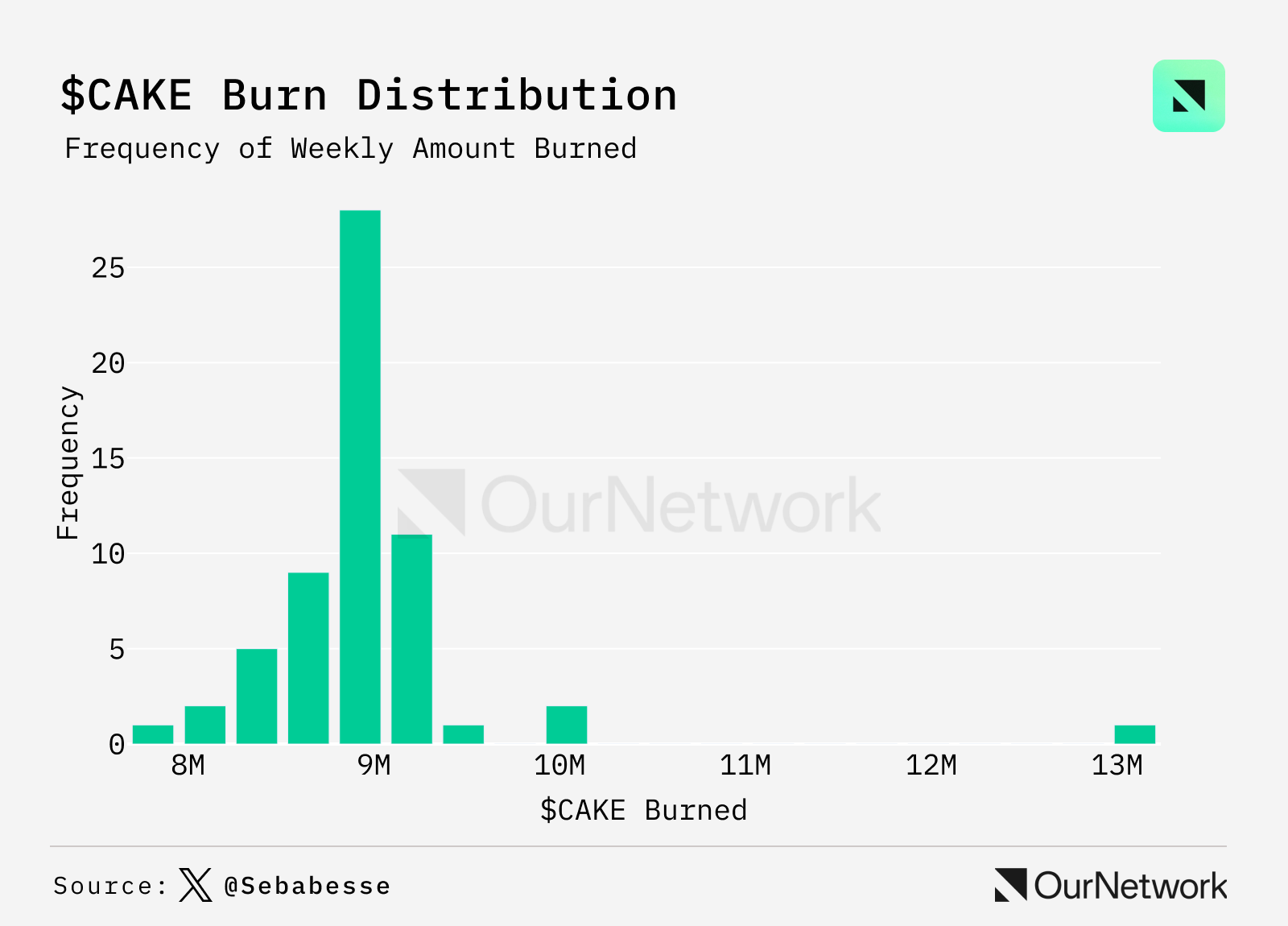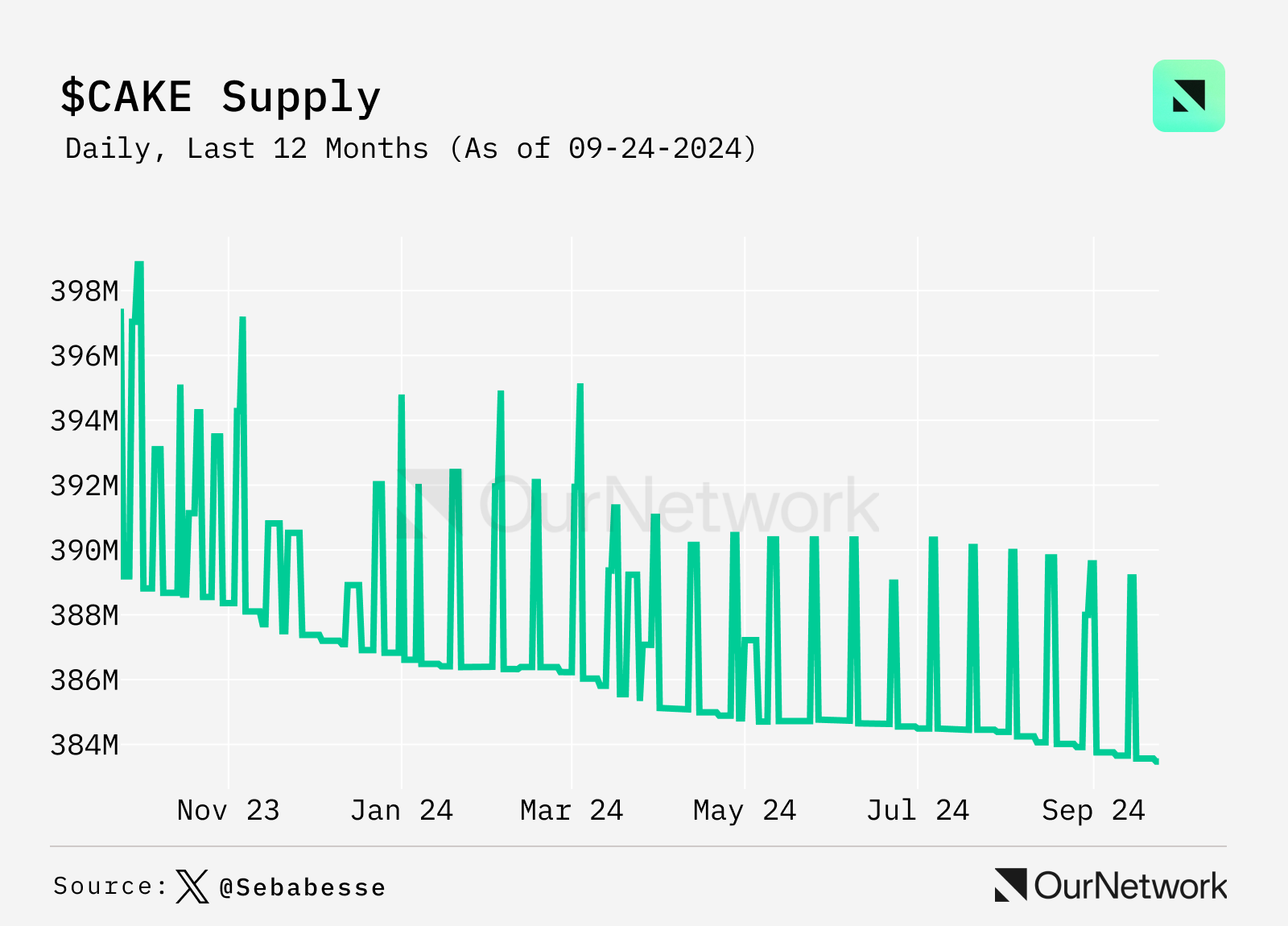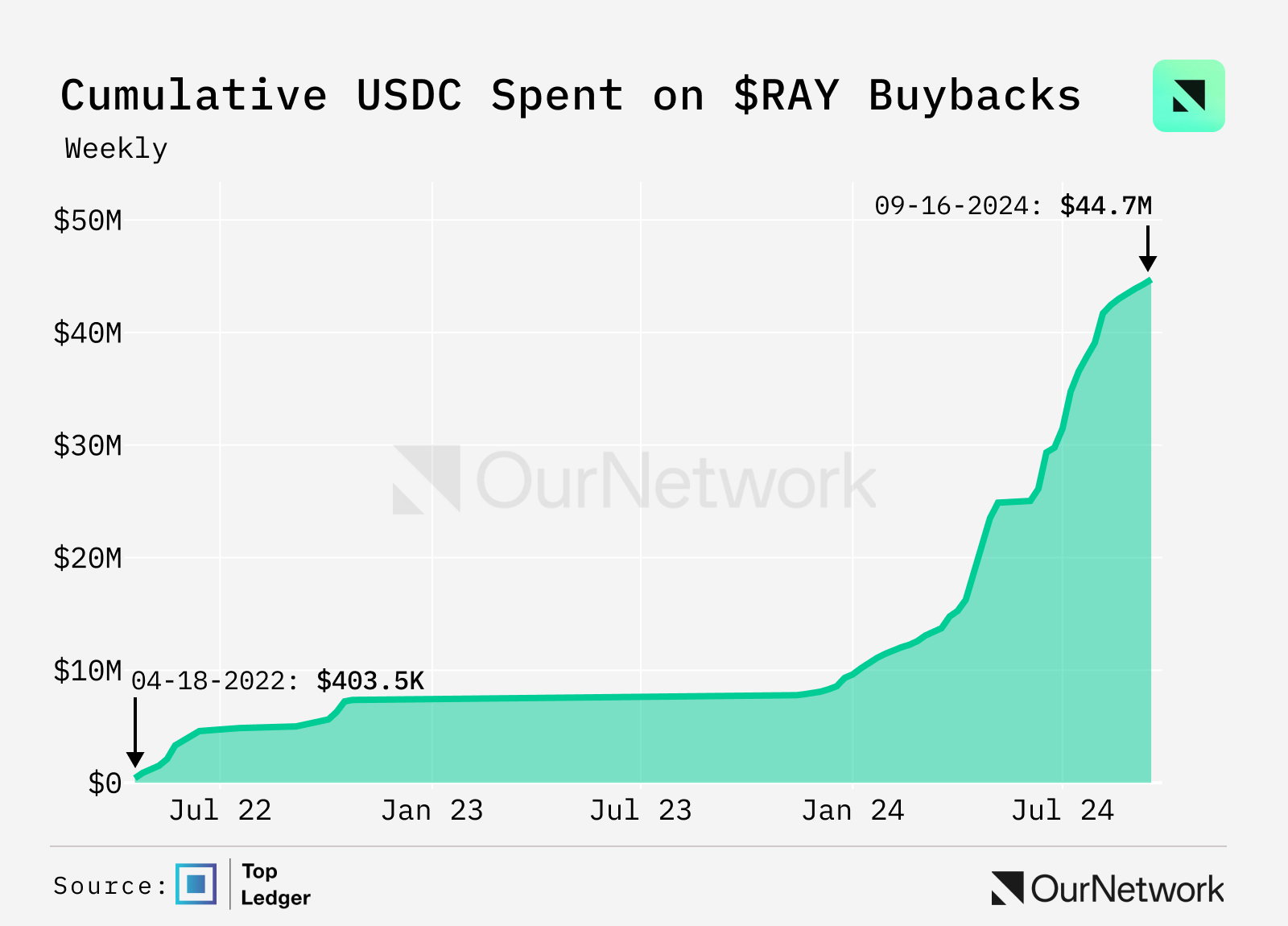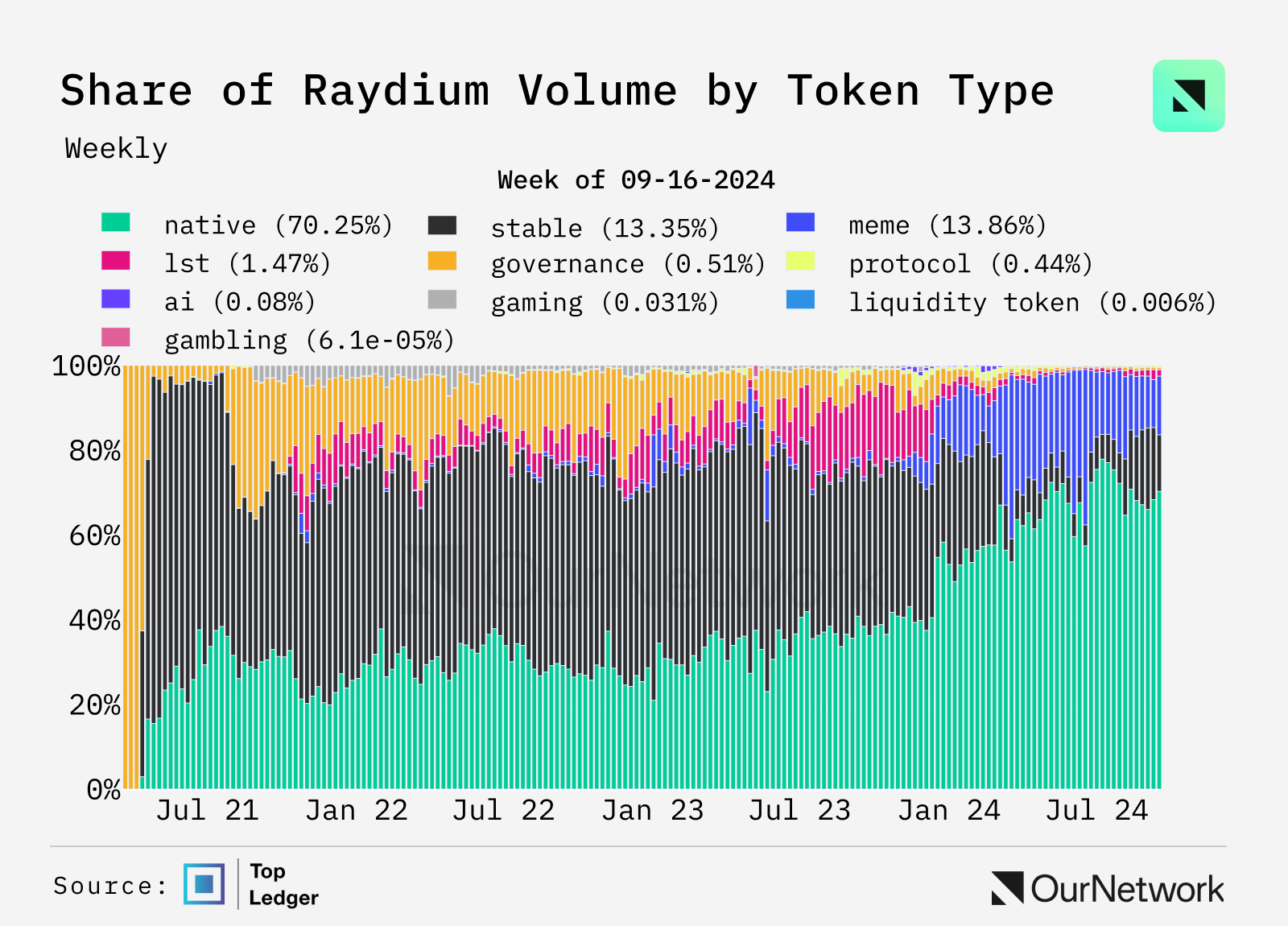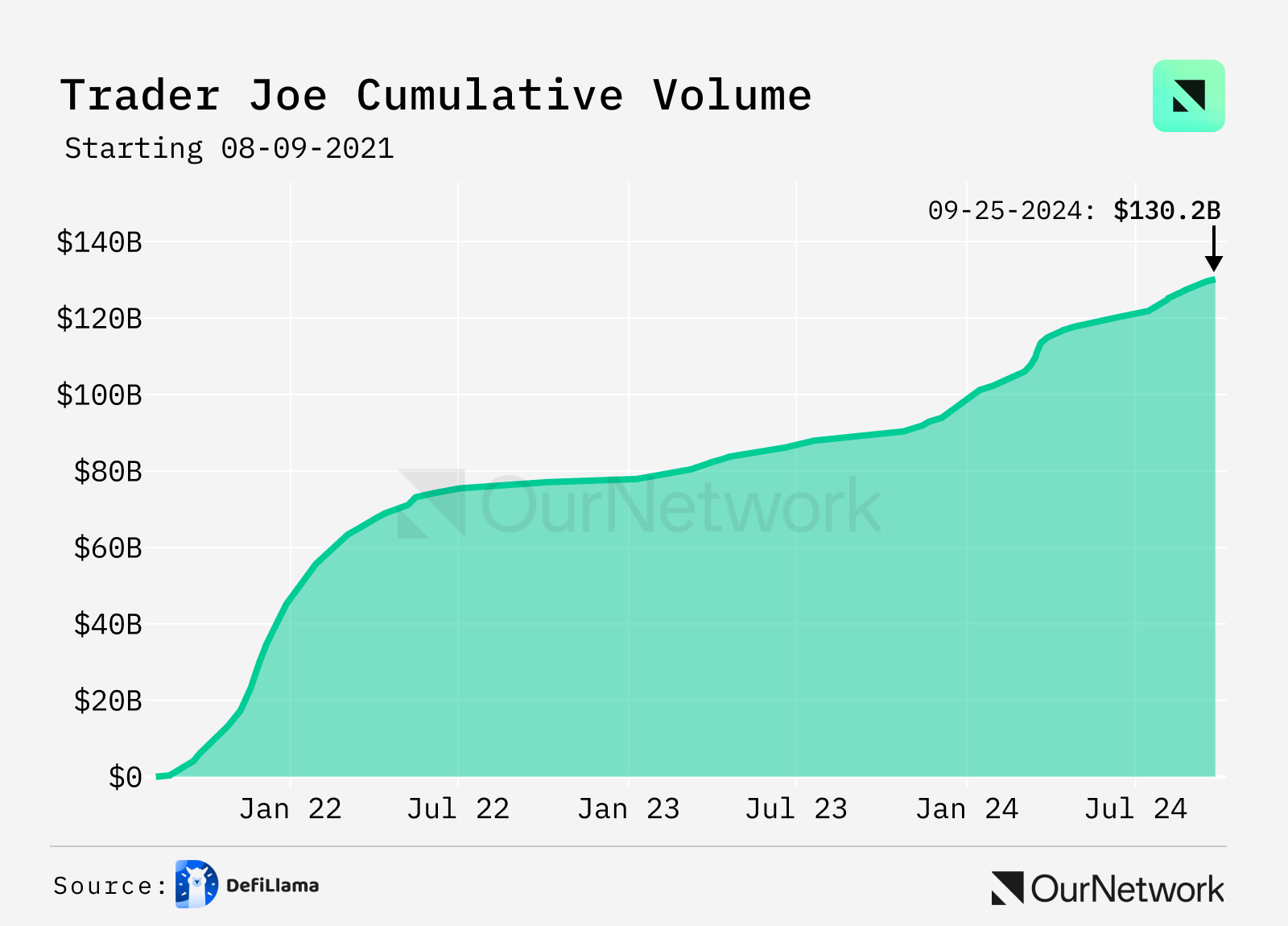Current state of DEXs by the numbers: Trading volume increased by 100% year-on-year, with weekly trading volume reaching
Original author: OurNetwork
Original translation: TechFlow
DEXs
Uniswap | PancakeSwap | Raydium | Lets F***ing Joe (Trader Joe)
DEX trading volume increased by 100% year-on-year; weekly trading volume reached $17 billion
-
Although decentralized exchange (DEX) trading volume has declined since its 2024 peak, it still hovers around $20 billion to $25 billion per week, up 100% from last year. Solana and Base contributed significantly to trading volume, with Solanas trading volume increasing more than 20 times, from $170 million to $4 billion. The only blockchain that decreased was Ethereum, with weekly trading volume down about 20%.
-
DEX trading is more intense than a year ago, when Ethereum accounted for nearly 60% of market volume. There are currently five blockchains with a market share of more than 10%. Ethereum remains the largest blockchain with 29%. Base has gained significant market share during 2024 and now accounts for more than 12% of DEX trading volume among all chains.
-
There have also been notable shifts in trading venues. Uniswap’s share of trading has dropped to 33%, down from 53% previously. Meanwhile, established DEXs like Solana-based Orca have increased their market share, while new exchange Aerodrome has also seen a rise in popularity.
Uniswap
Matías Andrade Cabieses | Website | Dashboard
Uniswap generated $26.4 billion in fees in the past year
-
One of the most attractive features of Uniswap is that it allows liquidity providers — users who provide assets to traders — to earn income. The chart below shows the fees generated by V3 pools over the past 12 months. USDC-WETH performed best, generating over $4 billion in revenue for liquidity providers (LPs). Uniswap V3 offers multiple rates to charge traders — 0.01%, 0.05%, 0.3%, and 1% — to provide flexibility to LPs and traders — similar assets, such as stablecoins, typically charge lower fees. These tiered fees allow LPs to optimize returns based on the volatility and trading activity of the asset.
-
Among the Uniswap V2 liquidity pools, the WETH-USDT pool performed best in terms of fees collected, exceeding $1 billion, followed by USDC-WETH and PEPE-WETH trading pairs. Despite the simplicity of V2, V3s centralized liquidity feature has attracted greater trading volume due to its greater capital efficiency and lower fees.
-
Although Uniswap generates significant revenue for liquidity providers (LPs), $UNI is only a governance token and lacks mechanisms like token burns that could boost its value. 60% of UNI was allocated to the community in 2021. This $UNI HOLD Wave chart shows some interesting trends.
-
Transaction highlights : This transaction shows the transfer of 500,000 $UNI (about $3.5 million) from Uniswaps timelock contract as part of its distribution mechanism. This system ensures that tokens are distributed gradually, aligned with long-term interests, and provides transparency. Analyzing these transfers can provide insights into distribution progress, potential market impact, internal behavior, possible changes in governance power, and the health of the protocol.
Pancakeswap
PancakeSwap’s $CAKE supply drops by 7.8 million after one year
-
PancakeSwap is a decentralized exchange that originated from BSC and now operates on multiple blockchains – the DEX issues $CAKE tokens as rewards given to liquidity providers (LPs). In 2023, PancakeSwap adopted a deflationary model to optimize its token economics. This was achieved through a mechanism of reducing issuance and recovering $CAKE from the market. Their efforts quickly paid off, as CAKE supply peaked at 391.3 million in August 2023. Since then, the supply has steadily decreased, reducing 7.8 million tokens over the past year.
-
To achieve this deflationary goal, PancakeSwap performs token destruction every week by sending CAKE to a destruction wallet on the BNB chain. According to their token economic model, an average of 9 million CAKE is destroyed per week. The reduction in issuance and market recycling offsets the minting volume.
-
Deflation is affected by market factors such as transaction volume and CAKE price. Over time, the deflation rate varies from 1.4 CAKE to 0.2 CAKE per block. Based on the current token economics, the weekly supply reduction requires 275K CAKE to be recovered from the market. This goal is achieved almost every week.
-
Trading Highlights : Tokens are burned every Monday in the team wallet. Monitoring these transactions is all you need to track the supply of CAKE.
Raydium
0x INFRA | Website | Dashboard
Raydium repurchases total over $35 million since January 1
-
Raydium is Solana’s leading decentralized exchange (DEX) by market share and liquidity pool creation. Since January 1, 2024, over $35 million in protocol fees have been allocated for automatic buybacks of $RAY tokens. Raydium has averaged 30% to 50% of cumulative spot market volume on Solana over the course of the year. Since its inception, Raydium has achieved nearly $270 billion in trading volume, with liquidity providers (LPs) earning over $630 million in trading fees.
-
Taking real trading volume into account after removing trading bots, Raydium’s exchange routing program performs well and currently accounts for more than 30% of all real trading flow, second only to Jupiter.
-
Despite being one of the main beneficiaries of the booming meme token trading volume on Solana, only 11.4% of Raydium’s total trading volume currently comes from meme tokens.
-
Trading Highlights : Raydium benefits from a rich ecosystem of third-party applications and protocols that use its core liquidity pool and trading infrastructure. The most beneficial is Pump.Fun, which migrated its liquidity pool to Raydium after completing the initial bonding curve. Other teams leveraging Raydium infrastructure include, but are not limited to, the following: Dexscreens MoonShot, Trojan, BananaGun, FluxBot, BonkBot, Photon, and BullX.
LFJ
LFJ reaches $130 billion in cumulative trading volume and surpasses $500 million in revenue by 2024
-
LFJ (formerly Trader Joes) is a blockchain token trading marketplace that launched in July 2021 and has facilitated over $130 billion in cumulative trading volume since then. In 2024, LFJ added over $30 billion in trading volume, double the volume from last year. This growth was driven primarily by increased trading activity on the Avalanche network, where LFJ holds a dominant position.
-
LFJ distributes 5%-25% of transaction fees to $JOE token stakers, distributing an average of $550,000 in stablecoins per month in 2024, which is a 109% increase over last year. Because 80% of revenue comes from Avalanche, the increase in on-chain activity brings significant value to JOE stakers.
-
$JOE tokens have reached their 500 million issuance cap, with approximately 380 million currently in circulation. JOE is rarely used as a liquidity reward due to the lack of a fixed reward program. To date, less than $100,000 has been distributed to yield farmers, while maintaining a positive yield of over $5 million.
This article is sourced from the internet: Current state of DEXs by the numbers: Trading volume increased by 100% year-on-year, with weekly trading volume reaching $17 billion
Headlines Binance Launches Pre-Market Trading Service Cryptocurrency exchange Binance announced that it has launched a pre-market trading service, allowing users to enter the market in advance before the official launch of tokens. A Binance spokesperson revealed that unlike its competitors, Binance offers pre-market trading of actual tokens rather than derivatives. It is reported that through this trading, tokens will be specially allocated and generated for users to hold and trade before the listing on the Binance platform. The service may cooperate with Binance Launchpool. Users can obtain new project tokens by staking tokens such as BNB, limiting transfers and withdrawals before the official listing. In addition, Binances competitor Bybit also provides pre-market spot trading services, but it seems to use derivatives rather than actual tokens. (TheBlock) The probability of the…
